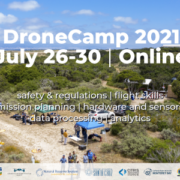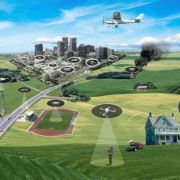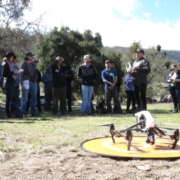2023 DART Symposium
The 2023 Monterey Bay Drone Automation and Robotics Technology (DART) Symposium will bring together experts and enthusiasts in the field of drone, automation, and robotics technology with entrepreneurs, policy makers, educators and community-based organizations. The symposium will be held from Wednesday, October 11th to Friday, October 13th, 2023, at the California State University, Monterey Bay (CSUMB) University Center. The event will attract a wide range of participants from academia, industry, and government agencies who are interested in exploring the latest advancements in drone technology and its applications.
The Symposium will cover three main topic areas:
- DART-related Workforce Development
- Central Coast Innovation Ecosystems
- Interfacing with the next generation.
The first topic area will focus on how to train and develop the workforce required to keep up with the rapid advancements in drone automation and robotics technology. This will involve discussions on topics such as educational programs, internships, and mentorship opportunities. The second topic area will cover the central coast innovation ecosystems, including companies such as Joby Aviation, Farm N-G, and Advance Air Mobility, and their contributions to the development of drone technology. The third topic area will be focused on engaging the next generation through job fairs, poster sessions, and round table discussions.
Overall, the 2023 Monterey Bay Drone Automation and Robotics Technology (DART) Symposium promises to be a comprehensive and informative event that will provide a platform for participants to learn about the latest advancements in drone technology and its applications. With a diverse range of topics and participants, the symposium is expected to foster collaborations and partnerships that will drive innovation and growth in the field of drone automation and robotics.





